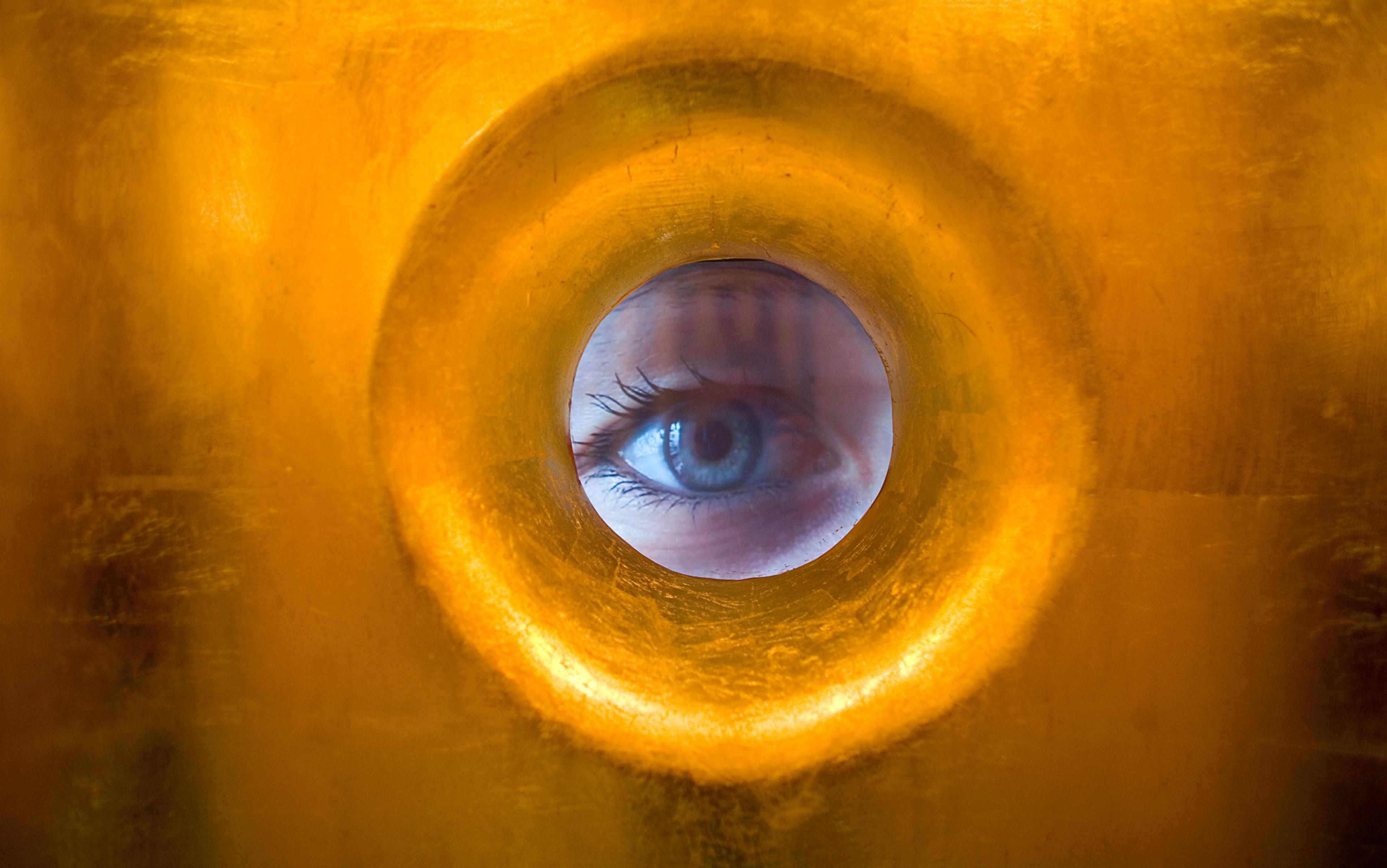I’m against knowledge. Don’t get me wrong: I’m as keen on the facts as the next person. I’m no friend of fake news. I want truth rather than falsity. It is specifically knowledge I’m against, not true belief. Knowledge asks more of us than true belief, and it isn’t worth it. In reality, the concept of knowledge is a hangover from a stone-age way of thinking that has long outlived its usefulness. We’d be far better off without it.
Philosophers are fond of showing how knowledge goes beyond mere true belief. To see the difference, imagine that you are convinced, on no very good grounds, that a horse called Meadowlark will win the 3:40 race at Ascot tomorrow. And then suppose it does in fact romp home. We wouldn’t say you had knowledge it would win, just because your belief turned out to be true.
What more than true belief is required for knowledge? A natural thought is that your belief needs to be backed by good reasons. It can’t just be a guess that happens to turn out right. But this doesn’t seem enough either. Imagine a friend buys you a lottery ticket as a gift. You don’t think much of the present, because you’re convinced that it won’t win, for the very good reason that it’s one in a million. And in due course it indeed turns out not to be the winner. Even so, we still wouldn’t say that you had knowledge that the ticket was worthless. Your belief might have been eminently reasonable, as well as true, but it still seems too happenstantial to qualify as knowledge.
For those philosophers who work in epistemology (the ‘theory of knowledge’), the holy grail is to pin down the nature of knowledge and explain why it matters. But despite thousands upon thousands of articles devoted to the topic, the philosophers haven’t been able to come up with a good story. I say that’s because they’re barking up the wrong tree. The notion of knowledge doesn’t in fact pick out anything important. It’s a crude concept we have inherited from our prehistoric ancestors, and it positively handicaps us in our dealings with the modern world.
Before the emergence of modern humans, our prehistoric ancestors couldn’t grasp such sophisticated representational notions as belief. Instead, they worked with a rough distinction between those thinkers who were in contact with the facts and those who weren’t. This rudimentary way of thinking lives on in the concept of knowledge. But we don’t need that concept anymore. The modern notion of true belief is far more subtle and flexible. Yet somehow the archaic concept of knowledge keeps us in its grip, like an old lover we can’t get out of our system. It messes us up in so many ways. We really need to forget about knowledge.
I’ll come back to the history of the concept in a moment. But first let me give some idea of the damage it does. One particularly clear example relates to the treatment of statistical evidence in the law. The courts get into a terrible tangle about this, and it’s all because of the concept of knowledge.
Imagine that 100 prisoners are exercising in the prison yard, and suddenly 99 of them attack the guard, carrying out a plan that the 100th prisoner is no part of. Now one of these prisoners is in the dock. No further evidence is available. Guilt is 99 per cent likely, innocence 1 per cent. Should the court convict? Everyone’s first reaction is – certainly not. The court has no information that rules out the defendant being the one innocent prisoner. You can’t convict someone solely on statistical evidence.
The prison yard riot is a made-up example. But the same issue arises in plenty of real court cases and, when it does, the law follows everyday intuition. Purely statistical evidence isn’t enough. In both civil and criminal trials, defendants can be found responsible only if the evidence relates specifically to them, and doesn’t just place them in some general category in which guilt is likely.
It might be intuitive, but this legal ban on statistical evidence is puzzling. Think of a man who is convicted because an eyewitness says she saw him steal a necklace. Nowadays, thankfully, the courts know eyewitness evidence can go wrong, and so they check carefully to make sure it’s reliable. Even so, the courts don’t demand 100 per cent certainty, only that the eyewitness makes doubt unreasonable – which seems to mean something like 95 per cent assurance, whenever the judges can be persuaded to put a number to it.
So we are often ready to convict on eyewitness testimony, but never on purely statistical evidence. You might well wonder why, if 95-per-cent reliable eyewitnesses are more likely to lead us astray than 99-per-cent reliable statistics.
What’s the logic in preferring sources of evidence, such as eyewitnesses, that lead to more false convictions?
Perhaps you’re thinking that this comparison shows only that we should raise the level for eyewitnesses too. What’s worse than convicting an innocent person? But that doesn’t get to the heart of the issue. The preference for eyewitnesses over statistical evidence isn’t a matter of numbers. Even if 1,000 prisoners had been in the yard, or 10,000, it would still seem wrong to convict on purely statistical grounds. No degree of certainty seems enough for statistical evidence. Yet nobody wants to impose such an absolute standard on eyewitnesses and other more direct kinds of evidence. That would mean never gaining any convictions at all.
So why do we shun statistical evidence, given that we’re ready to tolerate a reasonable margin of false convictions with other kinds of evidence? This is currently a hot topic among legal theorists, but so far nobody has made much progress. The best idea I know of, due to Clayton Littlejohn, my philosophical colleague at King’s College London, brings us back to the topic of knowledge.
Littlejohn’s idea is that we don’t want to convict unless guilt is known. If we believe the prison-yard defendant is guilty, we’ll be right 99 times in a 100. But in none of those 99 cases would our true belief amount to knowledge – our being right would be too happenstantial. By contrast, when an eyewitness actually sees a crime, she knows about it, and when she sincerely reports this in court, her hearers get to know about it too. Admittedly, we won’t have knowledge in the 5 per cent or so of cases where eyewitness testimony somehow goes astray. But that doesn’t mean we lack knowledge in the other 95 per cent of eyewitness cases. So, to sum up, while eyewitnesses leave us with a small 5 per cent chance that we don’t know about guilt, statistical evidence is much worse – it makes it certain that we don’t know.
So far so good. That seems a plausible account of our thinking. But at another level it only pushes back the problem. Maybe we intuitively feel that good eyewitnesses allow us to know about guilt, whereas statistical evidence never delivers genuine knowledge. But, even so, why is it a good idea to let this difference weigh in court? After all, a true belief derived from statistical evidence is just as true as one derived from an eyewitness – not to mention that the statistics deliver truths much more reliably than the eyewitnesses. On reflection, it’s hard see how it can be a good idea to convict only when guilt is known. If the courts are aiming to convict the guilty and free the innocent, and to avoid the converse results, what’s the logic in preferring sources of evidence, such as eyewitnesses, that lead to more false convictions?
Nearly all the experts assume that there must be some logic here, if only we can figure it out. But despite huge amounts of effort, none of them has managed to find any. I say that’s because there isn’t any logic to be found. In truth, our preference for eyewitnesses over statistical evidence is nothing but a reflection of our crude prehistoric concern with knowledge. This prejudice frustrates our project of convicting the guilty and freeing the innocent, and offers nothing in return – a microcosm, if you ask me, of how a concern with knowledge messes up our lives in general.
To understand why we’re in such a mess with statistical evidence, we need to go back to the evolutionary origins of the concept of knowledge. Many animals can discriminate between agents who are and aren’t acquainted with some fact. For example, low-status chimpanzees can tell whether the alpha male can see some tempting piece of food, as is shown by their grabbing it only if he can’t. In the simplest cases, they rely on lines of sight: does the alpha male have a clear view, or is something in his way? More generally, animals are sensitive to whether or not something is blocking the access of other animals to some fact.
We can think of this basic discriminatory ability as providing a primitive foundation for the concept of knowledge. Animals with this ability can divide agents into those who know some fact and those who are ignorant of it. But this doesn’t yet involve the more sophisticated idea of agents believing things, in the sense of making inner judgments that might be true or false. As young human beings develop, however, they become capable of this more refined understanding. They come to understand that, among the ignorant, it is worth discriminating those with false beliefs from the merely oblivious. For example, they come to appreciate that, among those who don’t know what’s behind some rock, say, some might actively believe there’s a banana there, even though there isn’t. Agents with false beliefs are not only unacquainted with their circumstances, they positively misrepresent them.
This is a very useful advance, since the false believers can be expected to behave like the knowers rather than the ignorant. A hungry agent who falsely believes a banana is behind a rock can be expected to go there, just like the agent who knows this. By relating the false believers to the corresponding knowers, as both believing the same thing, we sophisticated humans become much better at predicting their actions. (Of course, the false believers won’t actually find bananas. It’s only the true believers who generally gain what they seek.)
Evolutionary anthropologists are undecided about the precise historical point at which our evolutionary ancestors added the more flexible categories of true and false belief to the simple idea of knowledge. The developmental and comparative evidence from human children and other animals is not straightforward. In the past few years, evidence has emerged that even some great apes have a rudimentary grasp of false beliefs. Still, whatever the details, there seems little doubt that the evolutionary story began with a simple distinction between knowledge and ignorance, and that the fancier idea of belief came later.
Once the notion of belief is to hand, the old notion of knowledge becomes redundant. We modern thinkers can distinguish between three kinds of agents:
- those whose beliefs are in line with the facts;
- those whose beliefs misrepresent the facts; and
- those who have no opinion;
and we can anticipate their actions accordingly. Moreover, we can appreciate the practical advantage of true beliefs, and so strive to make sure that our own beliefs are true. The archaic notion of knowledge is not needed for any of these thoughts.
But unfortunately the old notion still has us in its grip. Think of the statistical evidence again. We might believe that the prisoner in the dock is guilty. And it is overwhelmingly probable that this belief is true, given the very strong statistical evidence. But, even so, we aren’t ready to act on our belief. We don’t classify our belief as knowledge, and so feel insecure. We don’t feel that we are in proper contact with the facts.
The prejudice in favour of knowledge leads us to act in ways that are contrary to our interests
In reality, we’re being jerked around by an atavistic way of thinking. We hanker for some clear and direct-seeming causal path from the facts to our mind, akin to how nothing lies between the banana and the alpha monkey. Eyewitnesses and their testimony fit that model, but the statistical evidence doesn’t. It’s too indirect. We might nowadays appreciate at an intellectual level that roundabout statistical reasoning can reliably lead us to true beliefs. But somehow we don’t feel that it amounts to the real thing. We don’t feel we have the kind of first-rate hold on the facts that we need to convict with confidence.
This preference for knowledge runs deep. I myself share the initial intuition that it would be wrong to convict the defendant just on the evidence of being one of the 100 in the prison yard. We wouldn’t know the defendant is guilty, I can’t help thinking.
Still, this intuition just doesn’t stand up to examination. Nobody doubts that punishing innocent people is a terrible thing. Even so, we’re prepared to accept a certain minimal risk of false convictions, otherwise we’d end up never punishing anyone. We can debate the appropriate level. I’m no law-and-order fanatic. I’d prefer the level to be lower than the 5 per cent that the judges seem ready to tolerate. Still, whatever the correct level, it makes no sense to set it lower for eyewitness than for statistical evidence, just because we feel that eyewitnesses give us ‘knowledge’ of guilt. We’ll only end up convicting too many innocents on the testimony of eyewitnesses, or freeing too many guilty parties when the evidence is statistical, or both. Our intuitions might run deep, but they stand in the way of our aims.
The legal shunning of statistical evidence highlights the distortions wrought by the concept of knowledge. But the problem is a general one. Across the board, we trust presumed sources of direct knowledge more than indirect reasoning. And, just as in the courts, this can’t help but do us harm. The prejudice in favour of knowledge leads us to act in ways that are contrary to our interests.
Take lottery tickets again. Many of us buy them at highly unfavourable prices. We don’t know we won’t win, we tell ourselves, even though the statistics emphatically say otherwise. Yet we are very quick to change our minds once we have more direct evidence, such as reading in the paper that we had only four of the six numbers right. Oh well, we tell ourselves, now we know we’ve lost, and we bin the ticket. Yet the chance of having the winning ticket could well have risen significantly if the newspaper is unreliable and capable of misreporting the two bad numbers. Our penchant for direct evidence obscures this. I wonder what proportion of unclaimed winning tickets are discarded for this kind of reason.
Once we start thinking about it, the examples multiply. By and large, the people we meet are trustworthy. We’d generally be safe enough entrusting a random stranger with our wallet. Yet we are very disinclined to do so. We have no basis for knowing, as we say, that the stranger won’t make off with the wallet at the first opportunity. On the other hand, direct contact can quickly make things seem different. We fall into conversation with the friendly fellow at the bus stop and decide he’s on the up-and-up. In truth, such friendliness is a poor indication of trustworthiness, but at least now we might know something about him. Generations of con artists have profited from this irrational preference for direct evidence.
And so on. We keep favouring weaker direct evidence over good statistics. Our neighbours recommend their washing machine, and this makes us much more confident of the brand’s reliability than reading the carefully researched statistics in Which? magazine. A friend’s mishap makes us feel we need insurance, even though the actuarial figures show the risk is minimal. Time and again, we’re more ready to act on information that fits the archaic stereotype of directly caused knowledge than on good statistics. But it’s all a bad idea.
In their desperate search to find some good use for the notion of knowledge, the philosophers sometimes say that ‘knowledge provides the norm for assertion’. What they have in mind is that you can’t just say what you feel like. You’re not supposed to lie, for a start. Nor can you mouth random wishful thoughts, just because you’d like them to be true. You need backing for your assertions. The philosophers’ suggestion is that the backing you need is knowledge. You shouldn’t say something if you don’t know it.
Well, perhaps this is indeed how we normally operate. We think it’s all right to say ‘She stole a necklace’ if an eyewitness tells us, because chances are we’ll then know this. But we can’t outright assert ‘He attacked the guard’ if our only evidence is statistical, even if it’s overwhelmingly likely to be true, because that evidence doesn’t deliver knowledge.
To the extent that this is our current practice, I say we’d be better off without it. If the aim of assertion is to communicate useful information, why restrict it to knowledge? Why report only facts that have had a casual impact on us, and exclude others that we are confident of? I’ve shown that our preference for knowledge distorts our choice of actions. Favouring knowledge in communication only spreads the contagion. Others will be led to act against their interests too.
We already check the precise backing our informants have for their claims
So I’m for flouting the knowledge norm of assertion. This needn’t mean that anything goes. You still shouldn’t say ‘He attacked the guard’ unless you have reason to be confident. But strong statistical evidence is good enough for me. Who cares that intuitively it can’t deliver knowledge? Sure, sometimes you’ll be unlucky enough to light on the one innocent prisoner in the guilty crowd. But that danger is already matched, and more, by the disinformation that is spread when we promulgate uncertain eyewitness testimony and other kinds of insecure putative knowledge.
Flouting the knowledge norm of assertion isn’t as radical as it sounds. I would say that, in contexts where it’s important to be right, people already transcend any crude knowledge norm. Think of a seriously competitive pub quiz. Team members will proffer competing answers, and the captain’s job is to figure out which is most likely to be right. ‘Do you know?’ is far too crude a tool. A sensible captain will try to find out the particular provenance of the suggestions – are you guessing, did you read about it recently, are you reasoning from general principles?
The same applies in other cases where truth matters. When our choice of medical treatment, or financial strategy, or travel plan, hinges on the view of some informant, we don’t want to rest our trust simply on whether our informants ‘know’. We will do better to find out what specific kind of backing they have for their advice, and to judge whether to follow it on that basis.
About a quarter of the world’s languages, including indigenous American and Balkan languages, have a system of ‘evidential’ constructions. In these languages, you can’t just assert something. You need to mark all assertions with an evidential that indicates the provenance of your claim. For example, the Eastern Pomo language from California has verbal suffixes indicating whether the source of your information is direct visual observation, other sensory perception, hearsay, or inference. Such systems seem a great improvement on those that simply assume that all indicative utterances are geared to a single standard of knowledge.
I’m not saying that we need to go the whole hog and reform our language. We can manage without a formal system of evidentials. In serious contexts, as I have suggested, we already achieve the same result by other means. We check, if we aren’t already aware, the precise backing our informants have for their claims. The simple idea that ‘knowledge’ provides the touchstone for all assertions thus drops out of the picture. Whether our informants satisfy the intuitive requirements for knowledge is neither here nor there. All we really care about is whether their beliefs are likely to be true.
Bertrand Russell once said that the concept of causation, ‘like much that passes muster among philosophers, is a relic of a bygone age, surviving, like the monarchy, only because it is erroneously supposed to do no harm’. Russell was probably wrong about causation. But his strictures apply perfectly to the concept of knowledge. This is indeed a relic of a bygone age, and moreover one that does appreciable harm. We should get rid of it.






